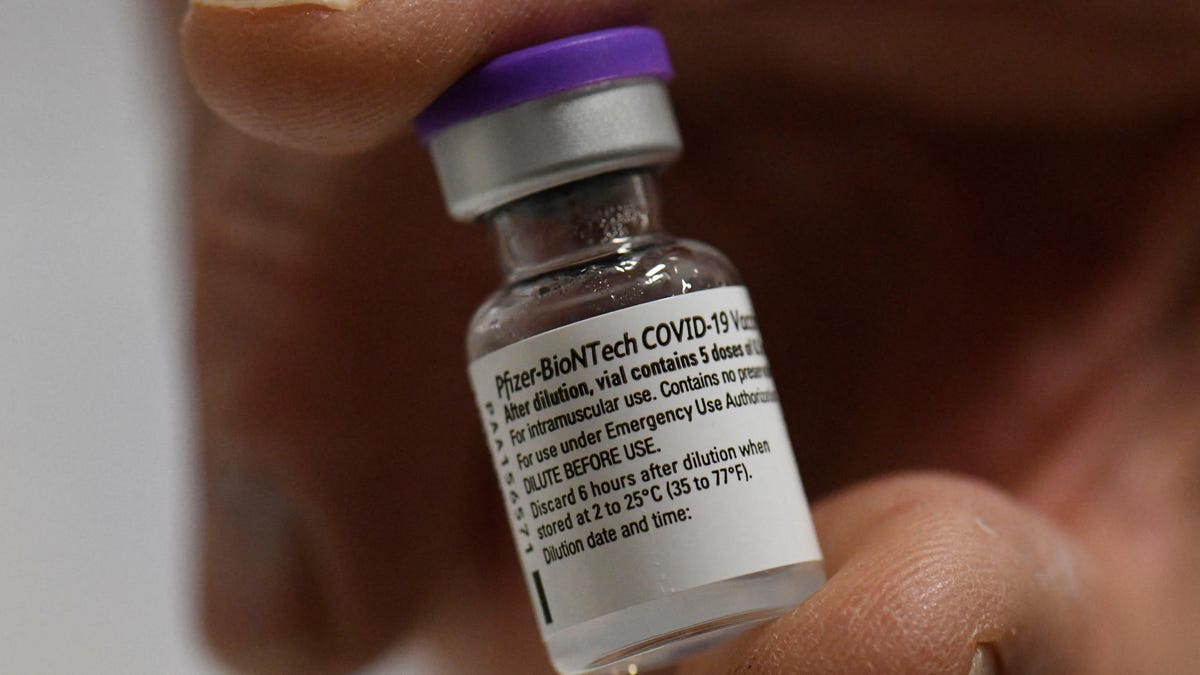
Today has brought some disheartening news for parents in the U.S. hoping to soon vaccinate their young children against covid-19. Based on clinical trial data, Pfizer and BioNTech announced Friday that children ages 2 to under 5 did not produce a sufficient immune response to two shots of their low-dose covid-19 vaccine, though children between 6 months and 2 years did appear to.
The companies now plan to extend their trial by adding a third low dose to the schedule, both for this age group as well as children ages 5 to 12. And it’s now expected that any authorization of the vaccine for ages six months up to 5 years will have to wait until the first half of next year.
The Pfizer/BioNTech trial collectively involved more than 4,500 children between the ages of six months and 11 in the U.S., Finland, Poland, and Spain. Those over 5 were given 10 micrograms of the vaccine (a third of the adult dose) in a two-dose schedule 21 days apart, whereas those under 5 were given a 3-microgram dose per shot.
In late October, the FDA authorized the Pfizer/BioNTech vaccine for children ages 5 to 11. The decision was based on data showing that the vaccine was around 90% effective at preventing illness from the coronavirus, as well as data showing that their immune response was similar to what had been seen in younger adults already. Unfortunately, that immune response wasn’t as robust for vaccinated children in the 2- to 4-year old group, Pfizer/BioNTech reported Friday, based on an interim analysis of the data.
The failure will inevitably delay any vaccination program for these age groups. Though children ages six months to 2 years did seem to have a solid immune response, the companies have made the decision (with the blessing of regulatory authorities) to amend the study for all children under age 5. They will now get a third dose of 3 micrograms at least two months after the second dose. The companies also announced that they plan to study a third dose of 10 micrograms in children 5 to 11, as well as teens 12 to 17. Should the third dose then seem effective for younger children, the companies plan to apply for an emergency use authorization (EUA) in the first half of 2022.
The decision to use lower doses for children was predicated on the hope that it would provide similar protection as the adult shots, while lessening any potential side effects, in particular the increased but rare risk of heart inflammation (myocarditis) that has been seen in teens and young adults, moreso in males than females. So far, at least, there hasn’t been any indication of major safety concerns in kids 5 to 11. The CDC has identified eight cases of myocarditis among this age group following vaccination, though it has not stated whether these cases were linked to the vaccines. The cases all appeared to be mild and at least five have already recovered, according to the CDC.
But the latest findings indicate that it can be a difficult balance to find the optimal dose and scheduling for a vaccine, for all age groups. In light of research showing that immunity has begun to wane for those vaccinated with two doses, as well as the emergence of variants like Delta and now Omicron, many scientists and even health officials have started to call for the mRNA vaccines to be classified as a three-dose, not two-dose, vaccine. And that appears to be the direction that Pfizer/BioNTech is moving toward.
In a conference call on Friday, the New York Times reported, Kathrin Jansen, Pfizer’s head of vaccine research, made clear that the company would seek to have its vaccines authorized as a three-dose series for children. And should that happen, it may pave the way for the same to be applied for all age groups.
Numerous studies have shown that people given three doses do appear to have stronger protection against infection from Delta and likely Omicron, though there is still the question of how long this boost in immunity will last.
